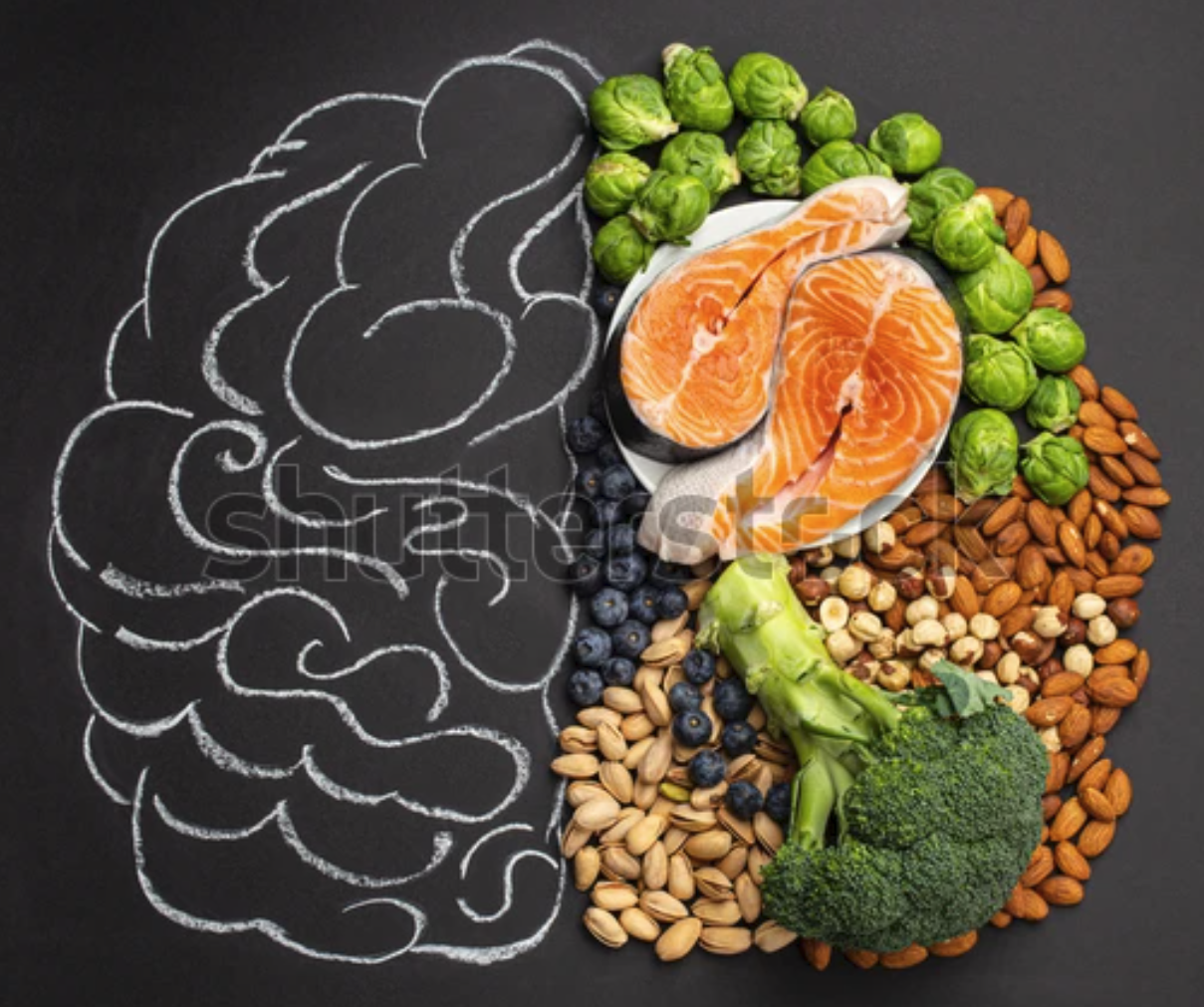
Create a healthier relationship wtih food for better mental health.
Food has long been associated with comfort and reward, but as eating habits have become progressively unhealthy, the link between nutrition and mental health has become increasingly complicated.
Recent research in psychology is beginning to shed light on the connection between food and mental health, offering new insights into how people can use food to promote better mental wellbeing.

According to Sandy McGlothlin, Registered Dietitian Nutritionist and Founder of Mood Food Nutrition Therapy at Concierge Holistic Wellness, a growing body of research suggests that food can powerfully impact one’s mood and mental state. Studies have found that certain types of food can reduce stress, boost energy levels and even improve cognitive performance.
“For example, foods rich in omega-3 fatty acids, such as salmon and walnuts, have been shown to help reduce symptoms of depression and anxiety. Additionally, diets high in refined carbohydrates, such as white bread and sugary snacks, can worsen mood and lead to depression and anxiety,” McGlothlin said.
McGlothlin’s personal experience was witnessing her mother’s decline.
“My mother suffered from chronic heart issues, and it didn’t hit me until she was gone that her mental state also suffered. That correlation led me to further my studies. I now help my patients find that the relationship between food and mood is essential to healthy living.”
Research has shown that attitudes toward food can significantly affect mental health. Negative associations with food, such as feeling guilty after eating, can lead to unhealthy eating patterns and worsen our mental state. On the other hand, having a positive relationship with food can promote healthier habits and better mental health.
The Food-Mood Connection
To re-establish a healthier relationship with food, experts recommend the following:
- Focus on the pleasure of eating rather than the guilt
- Savor every bite by removing distractions during mealtimes
- Adopting a healthy diet that includes a variety of nutrient-rich foods to improve mental health and overall wellbeing
- Include and enjoy anti-inflammatory foods like olive oil, berries, fruit (especially berries and avocado), vegetables (including dark leafy greens and broccoli), spices and fish
- Eat naturally cultured and fermented foods like homemade yogurts, kefir, kimchi and sauerkraut
- Source meats from pasture-raised, grass-fed farms
- Choose organic to reduce the amount of toxins consumed
One notable dietary regimen that has gained attention for its mental health benefits is the Modified Mediterranean Diet. McGlothlin suggests this pattern of eating since it is based on traditional Mediterranean cuisine, emphasizing fresh fruits, vegetables, whole grains, nuts and legumes.
“There is a lot of information online to help understand this way of eating. I help my clients learn that all food groups are healthy and which foods should be eaten daily versus the foods that we consider treats, those eaten occasionally. No foods should be considered ‘bad’ since that causes that disconnect with food and a positive outlook on eating.”
Studies have found that following the Mediterranean Diet can reduce stress, improve cognitive performance and boost mood. Furthermore, the high fiber content of this diet can help regulate blood sugar levels and reduce feelings of anxiety. Incorporating this diet into one’s lifestyle can be a great way to improve mental wellbeing.
It is important to remember that food is one factor in maintaining good mental health. Exercise, adequate rest and positive relationships are essential to a healthy lifestyle. Prioritizing these elements as part of a daily routine can create a positive environment for a person’s physical and mental health.
Go Local for Health
Saturday Morning Market – downtown Saint Petersburg for family-owned farms and artisan foods
Local Harvest – find local farms in Greater Tampa Bay for organic, pasture-raised, sustainable foods
Community Supported Agriculture – CSAs have become a popular way for consumers to buy local, seasonal food directly from a farmer
Rolling Oats Market and Café – curated organic health foods and products
LIfefarms – local organic farm and CSA
Sweetwater Organic Community Farm – nonprofit, community-supported, urban, organic farm and environmental education center in Greater Tampa Bay
Overall, understanding the psychology behind food and learning how to use food to promote better mental health can make a huge difference.





